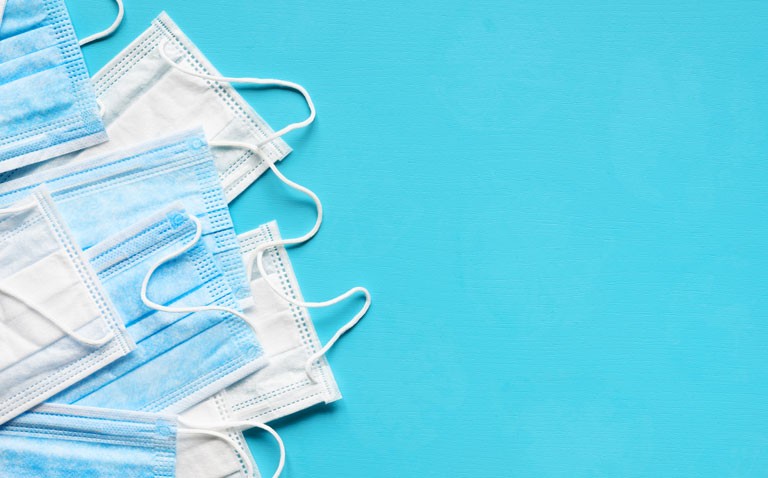The use of face masks has been mandated as a strategy for minimising the spread of COVID-19 but could the hydrating effect on the respiratory system boost immunity and reduce the risk of infection?
Studies have suggested that dehydration of the respiratory airways reduces mucociliary clearance of pathogens from the lungs and that increasing the humidity of inspired air is beneficial to the immune system. The wearing of a facial mask absorbs water from exhaled breath and serves as a temporary water storage site. However, is it possible that during inspiration, water evaporating from the mask could increase the humidity of air and thereby increase the hydration of the respiratory tract? More importantly, was this increased humidity and the subsequent respiratory hydration a more critical factor in preventing COVID-19 rather than simply wearing a mask? This was a question posed by researchers from the National Institute of Health in the US. Their working hypothesis was that face masks can reduce the risk of COVID-19 by increasing the humidity of inspired air. They set out to test their theory by examining the magnitude of this effect at different temperatures and with different mask materials. All measurements were performed by breathing into a sealed steel box ,simulating tidal (or restful) breathing up to a total volume of 95 litres. The researchers tested four types of masks: N95, a standard disposable 3-ply surgical mask, a 2-ply cotton-polyester blend mask and an online-purchased all-cotton mask and over an air temperature range from 8oC to 37oC. They calculated the volume of water stored and released by the masks as well as the increase in humidity at the different temperatures. In an attempt to produce stable readings, all volunteers breathed in the different environments for at least 10 minutes prior to data collection, which was repeated at least three times. Control data was obtained by asking the volunteers to breath without the use of a mask. In addition, the researchers ensured that there was no leakage of air from the masks by lining the edges with high density foam rubber to form a tight seal.
Findings
All four of the masks were found to strongly decrease the build-up of humidity during breathing, implying that the water was inhaled, but to different extents. At 22oC, reflecting indoor temperatures, the smallest increase in humidity (around 35%) was observed for the 3-ply surgical mask. In contrast, both the N95 and the polyester-cotton mask increased the humidity of inspired air by 55% to 60%. At the lowest temperature (8oC), the humidifying effect of all masks increased. Commenting on their findings, the authors speculated that the N95 and polyester-cotton masks, by creating the biggest increase in humidity of inspired air, enhanced mucociliary clearance that would help limit viral spreading.
Although in practice air leakage would be possible, the authors still concluded that both the N95 and polyester-cotton masks were likely to be the most effective.
Citation
Courtney JM, Bax A. Hydrating the respiratory tract: an alternative explanation why masks lower severity of COVID-19 disease. MedRxiv 2021 https://doi.org/10.1101/2020.12.23.20248671










